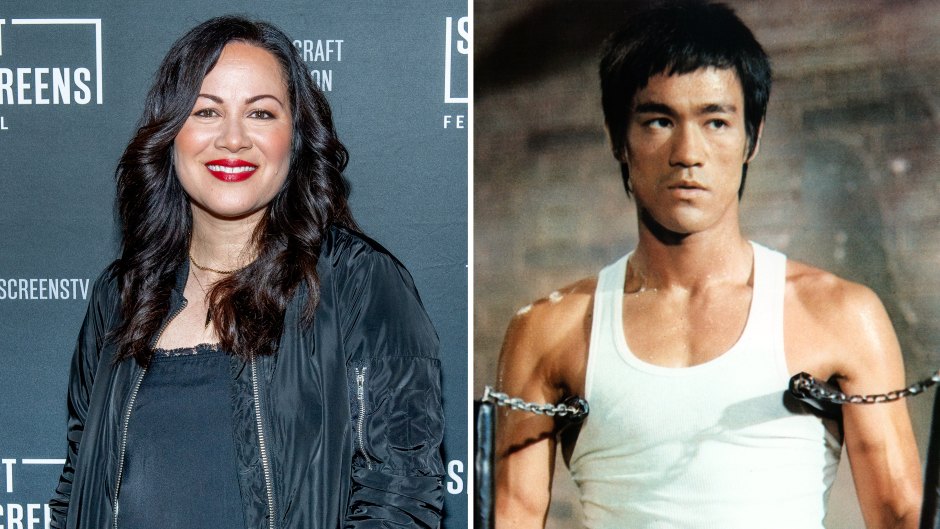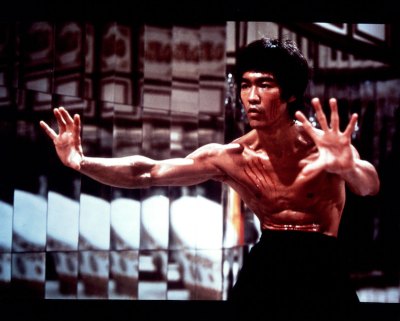
Roy Rochlin/Getty Images; Getty Images
Shannon Lee Felt ‘Uncomfortable’ Because of Dad Bruce Lee’s Depiction in ‘Once Upon a Time in Hollywood’
While critics and moviegoers alike are praising Leonardo DiCaprio, Brad Pitt and Margot Robbie for their performances in Quentin Tarantino‘s Once Upon a Time in Hollywood, one aspect sparking conversation is the portrayal of Bruce Lee. Among those speaking out is the late martial artist’s daughter, Shannon Lee.
“It was really uncomfortable to sit in the theater and listen to people laugh at my father,” Shannon — who keeps her dad’s legacy alive via a website, a podcast and a foundation — told The Wrap. “What I’m interested in is raising the consciousness of who Bruce Lee was as a human being and how he lived his life. All of that was flushed down the toilet in this portrayal, and made my father into this arrogant punching bag.”

In Once Upon a Time in Hollywood — minor spoiler alert here — Lee is played by Mike Moh and seen having a cocky confrontation with Brad’s stuntman character, Cliff Booth, on the set of The Green Hornet TV show. The two decide to have an friendly, best two-out-of-three rounds fight to prove their worth. Bruce wins the first round easily but is slammed into a car by Cliff in the second. They don’t get to finish the last round.
Shannon has no problem with the actor portraying Bruce, praising him for getting the Enter the Dragon star’s mannerisms and voice down. “But I think he was directed to be a caricature,” Shannon further clarified.
According to Shannon, her dad would often try to avoid physical altercations when challenged. “Here, he’s the one with all the puffery and he’s the one challenging Brad Pitt,” she pointed out in the interview. “Which is not how he was.” Shannon said Bruce comes across as “an arrogant a–hole who was full of hot air.”
Perhaps the biggest thing, Shannon explained, is that Asian-Americans faced “a lot of racism and exclusion” in Hollywood during the period the film takes place, specifically 1969. Shannon doesn’t think Bruce — who tragically died in 1973 — should have been treated “in the way that white Hollywood did when he was alive” because he was forced to “fight triple hard” to accomplish “what was naturally given to so many others.”
In the end, Shannon does acknowledge that Quentin may have been trying to make a point about how Bruce and his contemporaries were treated at the time “but it doesn’t come across that way” in the movie.








































